10Nov
Ethanol in Beverages: Understanding Its Role and Impact
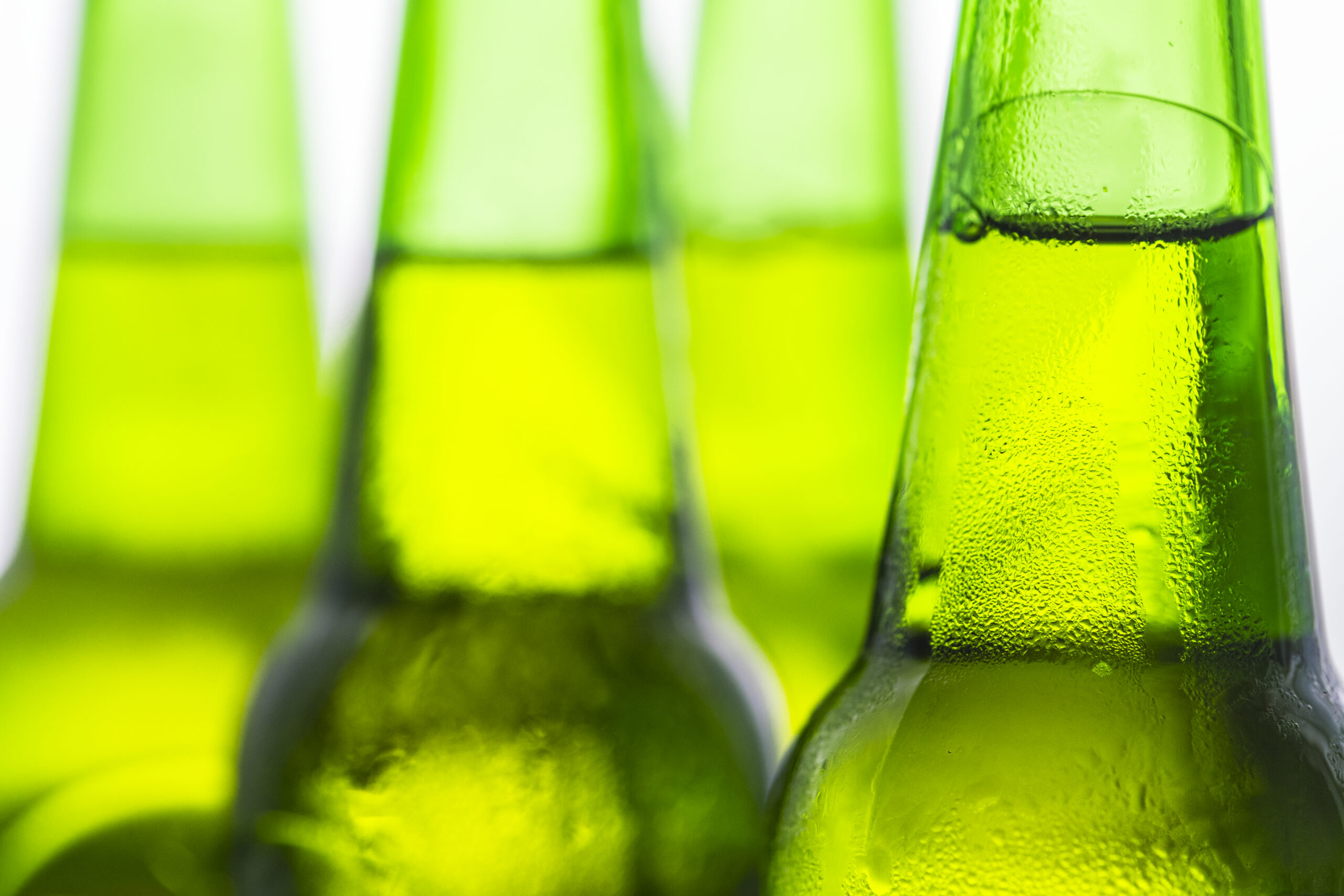
Ethanol, also known as ethyl alcohol, is a common component in many beverages enjoyed worldwide. From a simple beer to a complex cocktail, ethanol provides not only the characteristic “kick” but also affects flavor, aroma, and mouthfeel. This blog will delve into how ethanol is used in beverages, its effects on taste and experience, and the role it plays in both traditional and modern drink production.
What is Ethanol in Beverages?
Ethanol is the only type of alcohol that’s safe for human consumption, making it the go-to alcohol in beverages. It’s created through the process of fermentation, where yeast consumes sugars found in grains, fruits, and other plants, converting them into ethanol and carbon dioxide. This fermentation process is fundamental in the production of a wide variety of alcoholic beverages, including beer, wine, and spirits.
Ethanol’s Role in Beverage Flavor and Experience
Ethanol impacts beverages in more ways than just providing alcohol content. It interacts with other ingredients to create a distinctive taste and mouthfeel that enhance the drinking experience:
1.Flavor Carrier
Ethanol has a unique ability to dissolve both water- and fat-soluble compounds, which enhances the delivery of a beverage’s flavor profile. This property is particularly important in spirits and cocktails, where the alcohol carries the flavors from added ingredients like herbs, spices, and fruit, allowing them to blend seamlessly.
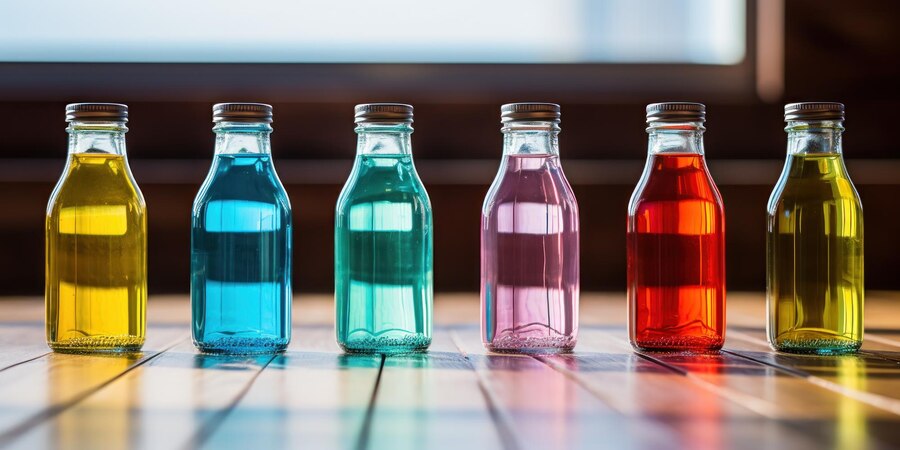
2.Enhanced Aroma
Alcohol helps to release the aromatic compounds in beverages, making the scent of the drink more noticeable. Since aroma is a crucial part of tasting, ethanol’s role in delivering scents elevates the drinking experience.
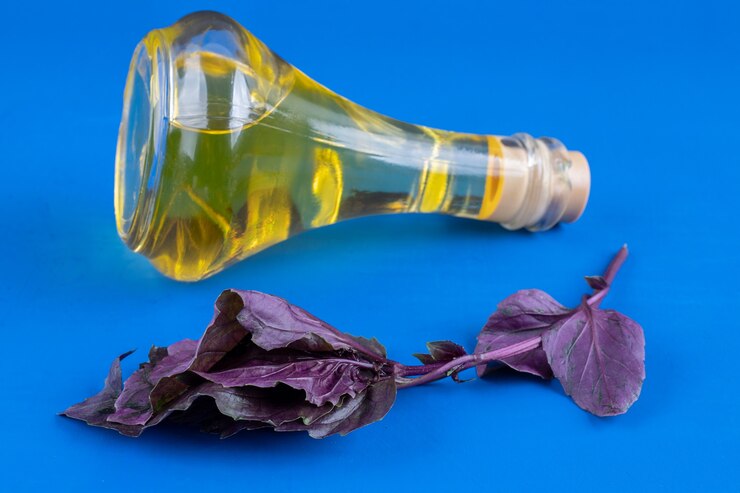
3.Textural Quality
The alcohol in beverages provides a warming sensation and influences the mouthfeel, giving drinks a smooth, slightly viscous texture. This is especially noticeable in spirits like whiskey and rum, where higher alcohol content is desired for a full-bodied feel.
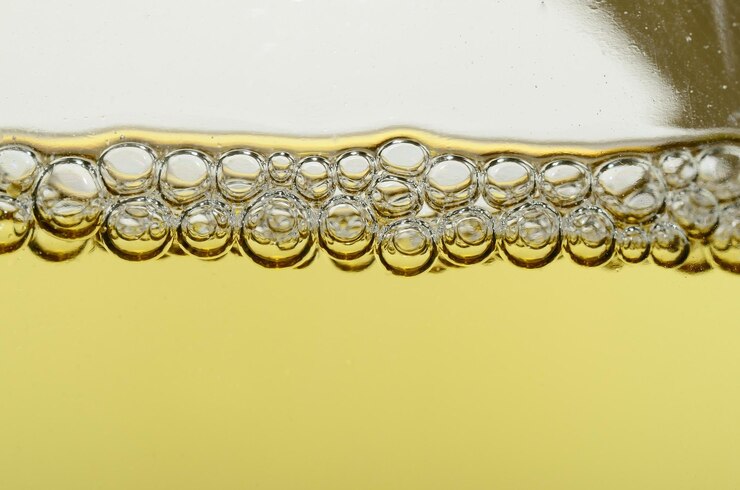
4.Astringency and Balance
Ethanol brings a subtle bitterness and astringency to beverages, which can be balanced with sweetness, acidity, and other flavor elements. For example, in cocktails, the bitterness of ethanol is often countered by mixers, syrups, or fruit juices, creating a balanced taste.
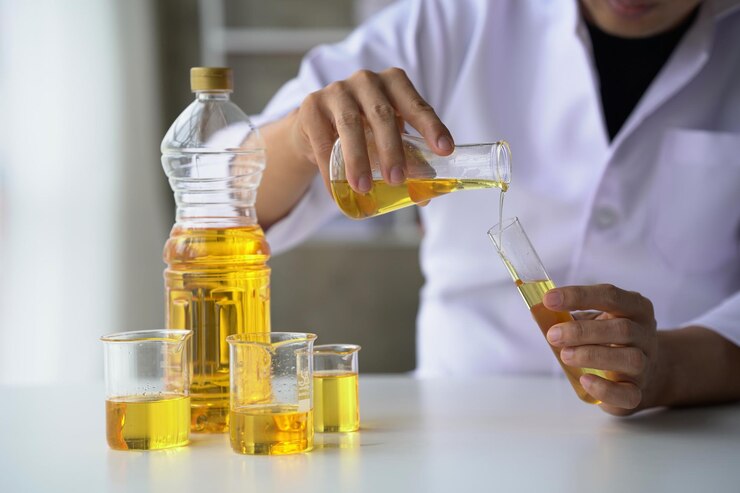
Ethanol Concentrations in Different Beverages
The concentration of ethanol varies widely depending on the type of beverage, which in turn influences its flavor, strength, and how it’s consumed:
- Beer: Typically contains 4-6% alcohol by volume (ABV), offering a lighter taste with a mild warmth. Beer is enjoyed for its subtle effects and wide flavor varieties, thanks to diverse grains, hops, and brewing techniques.
- Wine: With an ABV of around 9-16%, wine is stronger than beer but still has a moderate ethanol content. The alcohol in wine helps express its complex bouquet of flavors and aromas, from fruity notes to earthy undertones.
- Spirits (Liquor): Spirits like whiskey, vodka, rum, and gin contain much higher concentrations of ethanol, typically between 35-50% ABV. The high alcohol content makes these drinks potent, requiring either dilution (with mixers or water) or small serving sizes. The higher ethanol concentration in spirits intensifies the flavor, providing a bold drinking experience.
- Liqueurs: Liqueurs have a broad range of ABV, generally from 15-30%. They are often sweetened and flavored with fruits, herbs, or spices, which are carried well by the ethanol content.
Production Methods and Sources of Ethanol in Beverages
Ethanol in beverages can come from various raw materials and production methods, each adding unique qualities:
- Grain-Based Ethanol: Grain is a common base for many alcoholic beverages, including beer, vodka, and whiskey. Grains like barley, corn, and rye are fermented to produce ethanol, giving these drinks distinctive flavors influenced by the specific grain used.
- Fruit-Based Ethanol: Fruits, particularly grapes, are used to produce wine and brandy. The natural sugars in fruits make them ideal for fermentation, and the resulting ethanol is usually complemented by fruity, floral, or earthy notes, depending on the fruit type.
- Sugar Cane and Molasses-Based Ethanol: Used primarily in rum production, sugar cane or its by-product, molasses, is fermented to produce a rich and complex ethanol base. This method produces a spirit with a sweet, tropical flavor profile.
The Social and Cultural Role of Ethanol-Based Beverages
Alcoholic beverages have played a central role in cultures around the world, used in social gatherings, celebrations, and even in rituals. The presence of ethanol in these beverages contributes to their calming or uplifting effects, enhancing social interaction and enjoyment. While ethanol has been an integral part of human history, it’s essential to consume it responsibly due to its effects on the body and mind.
The Modern Trends in Ethanol Usage in Beverages
With the rise of craft brewing and distilling, as well as growing interest in health-conscious drinking, the landscape of ethanol-based beverages is evolving:
- Low-ABV and No-ABV Options: For consumers seeking healthier options, low-alcohol or non-alcoholic versions of traditional drinks have become popular. These beverages mimic the flavors and textures of alcoholic counterparts but with reduced or zero ethanol content.
- Craft Spirits and Experimentation: The craft movement has introduced experimental flavors and unique production techniques, pushing the boundaries of traditional ethanol-based drinks. Artisanal and small-batch spirits often use unusual botanicals, unique aging processes, and locally sourced ingredients to create distinct flavors.
- Flavored Beverages and Infusions: Many drinks today incorporate ethanol with added infusions of fruits, herbs, and spices. These additions are especially popular in flavored vodkas, gins, and rums, as well as in premade cocktails.
In Conclusion
Ethanol is more than just an intoxicating agent in beverages—it’s a crucial component that enhances flavor, aroma, and the sensory experience of drinking. From craft beers to fine wines and aged spirits, ethanol contributes to the depth and character of our favorite drinks. As trends continue to shift, ethanol remains central to both traditional recipes and new innovations, connecting people and cultures in shared moments of enjoyment.
Whether enjoying a classic cocktail or a zero-proof drink, understanding ethanol’s role allows us to appreciate the artistry and science behind every sip.
Recent Posts
- Ethanol Screen Wash: A Winter Driving Essential
- Ethanol in Industrial Chemical Manufacturing: A Versatile Building Block for Innovation
- Ethanol as a Biofuel: Fueling the Future with Renewable Energy
- The Role of Ethanol as a Preserving Agent: Enhancing Shelf Life and Safety
- Ethanol in Paints and Varnishes: Enhancing Performance and Sustainability